
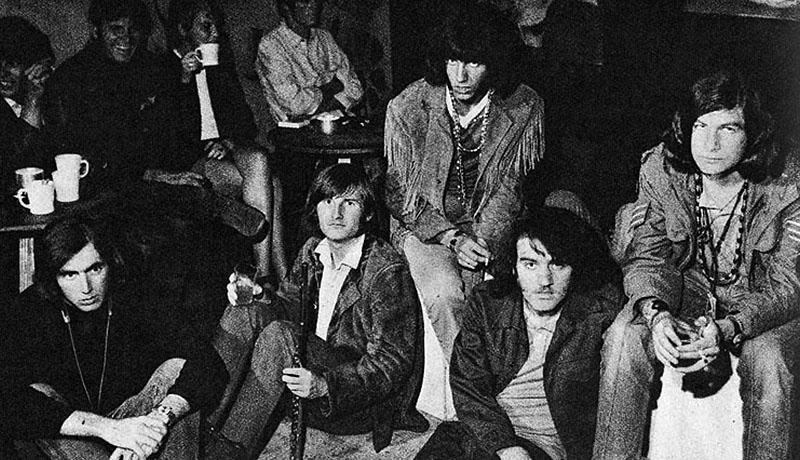
The online South African Rock Encyclopedia covers the history of South African rock music from the 1950s up to the early 2000s. All this information is made freely available to the public.
Home > Rock Legends > 1970s > Otis Waygood > Discography > Simply Otis Waygood
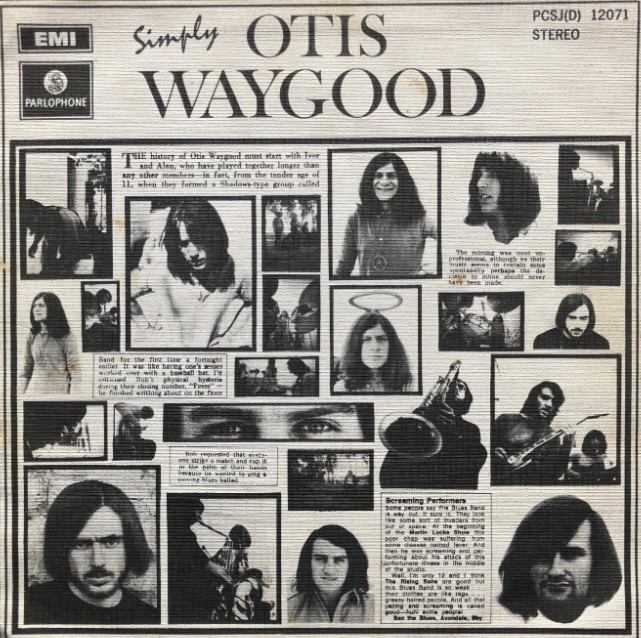
Simply Otis Waygood [LP]
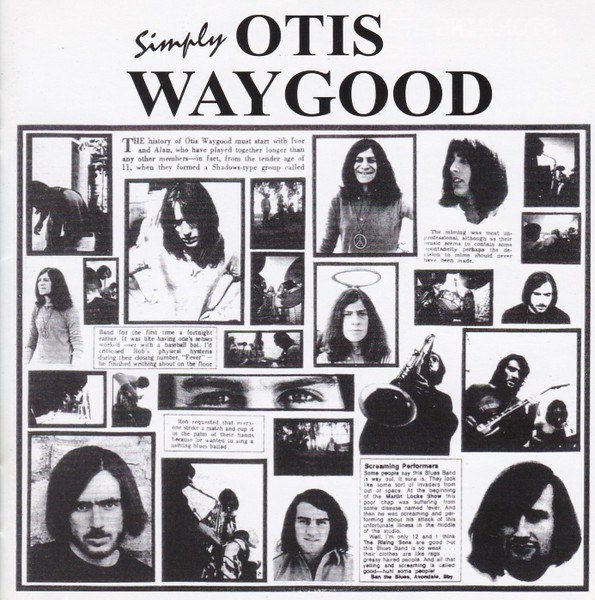
Simply Otis Waygood [CD]
A Clive Calder production
Engineered by Leo Lagerway
LP: 1971, EMI Parlophone, PCSJ (D) 12071
CD: June 2003, RetroFresh, freshcd 135
Design and photography by: Rick Alexander
Information and cover scan kindly supplied by Mike Greeff, July 1999.
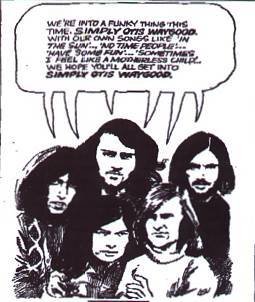
Advert from Impact magazine, November 1970
(supplied by Dave Malherbe, October, 1999)
by Bas Möllenkramer, Soest, the Netherlands, 2000
How do you review a record from 1971 that you grew up with and that is inextricably mixed up with your life? Any reader expecting pure critical objectivity had better turn away now.
'Simply Otis Waygood' is a complex record. For starters the title is a paradox. Those of us who already had the first album with the famous black sleeve, and the accompanying hit single 'Fever' were used to a band with the full-length name The Otis Waygood Blues Band. On reading the title of the eagerly awaited second album, fans are invited to simplify the group name to "simply" Otis Waygood. Yet both the album sleeve and the record label credit the music to the long name of the band. Later on, the band finally managed to achieve the simpler name. The European singles on Decca from 1976/7 had nothing to do with blues anyway (see the Otis Waygood Band).
The record features exclusively the band's own compositions, with the minor exception of the closing song which is a traditional blues lament. It is interesting to speculate on the band's influences at the time. It seems almost certain that the band members' record cabinets held the works of Ten Years After, the Free and the Rolling Stones. This allows us to pinpoint the style of the album, which could fairly be named derivative English blues-rock. But by using unusual instrumental arrangements, such as acoustic and electric guitars with sax, harmonica and flute, the band nevertheless manages to achieve a personal identity, setting them clearly apart from their contemporaries.
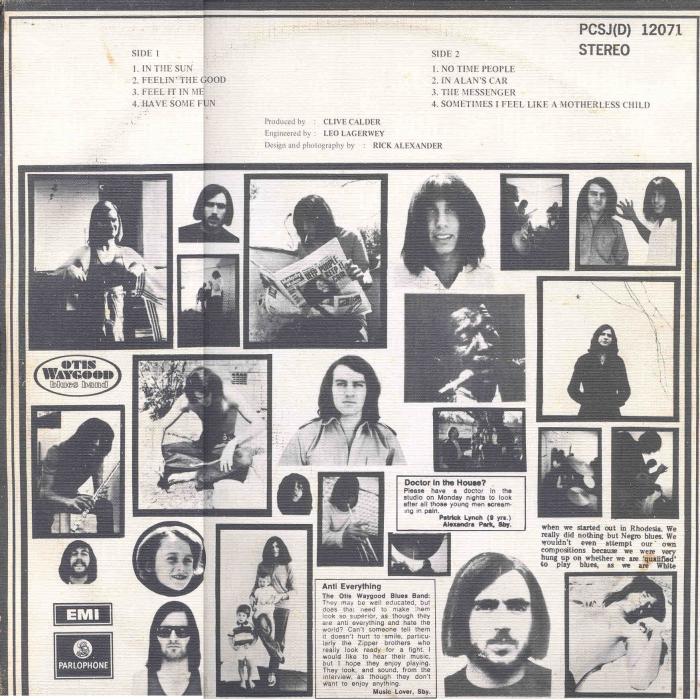
LP Back Cover
The black-and-white sleeve shows group members in various off-duty poses, amidst a random collection of press clippings, some of which can be indentified as coming from Salisbury, the band's home town (now Harare, in Zimbabwe). {Actually they came from Bulawayo, according to Keith Downs}. The photographer seems to have wanted to make the band look as ugly as possible, in keeping with similar marketing ploys by England's the Rolling Stones and the Pretty Things.
The album has a big heavy sound with awesome deep bass, but due to the lack of higher frequencies (treble) on instruments like the acoustic guitar and the drums, normal wear and tear becomes very audible and this makes the record oddly delicate. Even slightly worn copies will sound bad with the treble turned all the way up to compensate for the dull mix. This is a fair warning to collectors who are offered less than mint-condition copies. Further, the mixing is uneven and variable. The last song on side one is far louder than the other tunes, coming as a complete surprise. These level differences are easy to correct for when the album is transferred to a CD-R as a safety copy. The closing song on the album is markedly quieter and therefore also highly susceptible to wear and tear. This reviewer has not heard an unscathed copy, and digital restoration for private CD transfer proved a special challenge on this tune.
The music is amazing, the first long song 'In The Sun' having a relaxed feel, almost putting the listener into a trance right away. The weird pushing and pulling rhythm of the opening gives way to a easy going rhythmic backing allowing extended solos. There are not one but two false endings before the final finish.
The third tune on side one 'Feel It In Me' is a straight copy of a song from the Free's 'Fire and Water' album, with a similar slow groove under some relaxed singing with a wonderful girl chorus (We'd love to know who the girls are!). After the final verse the band seems to be in such a good mood they are unable to stop, continuing the riff seemingly forever. This piece shows how well these musicians are attuned to each other. It is extraordinarily difficult to play slow rock music that holds the listeners attention and Otis Waygood succeed admirably.
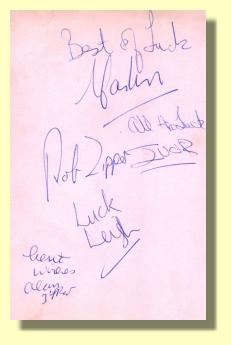
Autographs
Standout track on side two is 'The Messenger', a six minute extravagaza allowing plenty of space for a wonderful flute solo, underpinned by a backing track of bass, drums and acoustic guitar. Finally a saxophone joins in the musical riot before a return of the closing verse and chorus, with the acoustic guitar dramatically switching speakers in the middle of the riff.
After this song the listener gets the feeling the album has ended. But then very quietly the final song starts off with a drone acoustic guitar and lamenting vocal. This is 'Sometimes I Feel Like A Motherless Child' which is superbly sung and delicately coloured by eerie distant flute playing. Free form drums come in about half way and change the mood from melancholic to threatening.
After so many years I can still listen to 'Simply Otis Waygood' for pure pleasure. There are short instrumental tunes and long solos for flute and guitar. The singing is soulful and honest. None of the band members are necessarily virtuosos on their instruments but together they grab the listeners attention.
'Simply Otis Waygood' is a fine record that I would not be without.